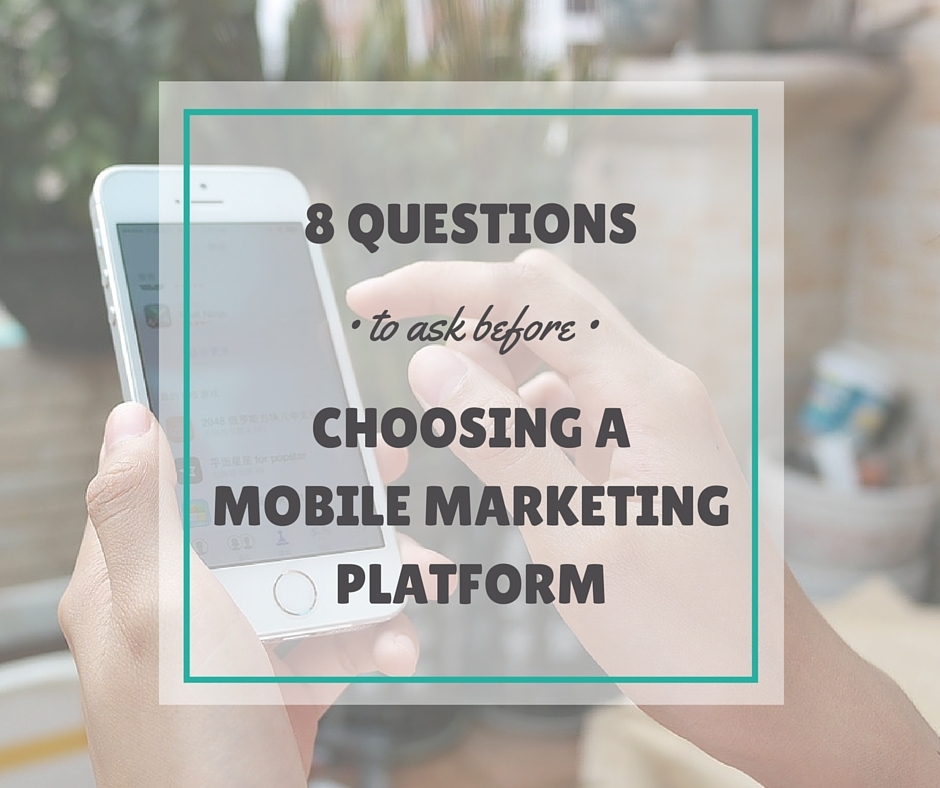So you have an app. Things are going ok but you can’t truly say you understand what’s going on within your app. Who’s your audience, what’s their behaviour like, how well do they interact with your messages and what are they interested in? Good news is, you’re not alone. This is an all too common scenario in the brand app world and eventually, you’ll want to start better engaging and interacting with your audience.
Selecting a mobile marketing platform to help you do so can be quite challenging, largely due to the fact that it is, to this day, somewhat of uncharted territory. The kinds of solutions available out there differ from each other quite a bit- some are focused on one specific aspect of mobile, like geofencing and iBeacons, while others are much more comprehensive, sometimes even expanding beyond push notifications (for example, offering SMS services). So what features and functionalities should you be looking for?
Needless to say, you need help. With that in mind, here’s a list of eight questions you might want to ask when selecting a mobile marketing vendor:
1. What’s the onboarding process like?
Let’s start from the beginning. How much time and effort will it take to get your app up-and-running with your new mobile marketing platform? Will you need a developer? Is there an easy-to-implement and well documented SDK? These are important questions you should be asking potential mobile marketing vendors. Make sure you pick a solution that takes the heavy lifting off your shoulders, saving you time and money.
2. What types of notifications can you send?
These days, app push notification technologies allow you to go much further than just a simple text. You should think of your notifications as a blank canvas. Text, full HTML, a map, selfie or whatever it is you need.
You should also make sure you can go beyond simply reaching out but actually engaging your audience with two-way communication like a survey, questionnaire or even a private conversation.
3. Does it include location services?
One of the biggest benefits of a comprehensive mobile marketing solution is to be able to push at the right time and place. This can be done via geofencing or at a micro level with iBeacons. You can read more about how these technologies work in this previous blog post.
Don’t settle for a solution unless you’re confident geo-targeting can be done effortlessly.
4. Can you segment based on behaviour?
Location services become truly powerful when combined with a clear segmentation strategy. Sure it’s great to reach out based on location but you also need to learn from each of these interactions so that your communication becomes more relevant the more you push.
Segments are primarily based on user behaviour. Based on how app users interact with your messages you should be able to automatically segment them by interest, for example. Learning what they’re interested in (and also what they’re not) is a crucial part of increasing engagement and reducing opt-outs.
5. Can you push to any device? Cross-platform?
When it comes to mobile you should think multiple screens. Does your solution allow you to push to any device or only to a smartphone? Make sure you’re able to push to all screens/devices your users are at, whether it's a smart watch, web browser or any other connected device. That flexibility is what makes your mobile marketing campaigns truly integrated.
6. What kinds of metrics does the dashboard provide?
Your mobile marketing solution should give you quick access to all crucial app usage information you need in order to make educated decisions.
What percentage of app installs opt-in to accept push notifications from you? How many times was your app opened vs the number of notifications that were opened and the number of times the app was opened because of a push notification? How many push notifications were sent vs opened or even a general overview of all active app users. These are just a few straightforward examples of crucial information you should be monitoring regularly.
7. Is there a way to connect to my existent systems?
Not many currently available solutions deliver on this one. Live API means your marketing and data teams have real time signals from your mobile audience’s interests, preferences and behaviors. You can use it, for example, to send a persuasive win-back email the moment a user uninstalls your app, notify a sales associate when a customer in-store is looking for answers, present an offer based on a recent search query, etc. Integrate and share data from your mobile marketing system with any other platform.
8. What’s their safety and privacy policy like?
The amount of information gathered by mobile technologies is enormous, much of which are private and personal to your users only like location, behaviour and demographics. You can not afford to have any of this information leak. To put it simple, make sure you go over your mobile marketing vendor’s safety and privacy policies and that their solution is compliant with local legislations.
If you read it this far it’s safe to assume you’re serious about your mobile marketing. I hope these eight questions help you assess mobile marketing vendors and make an educated decision.


